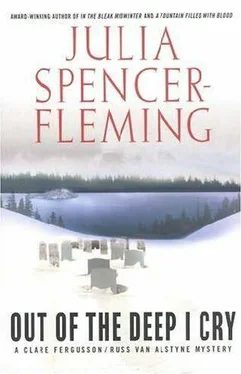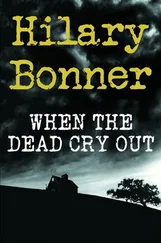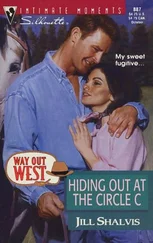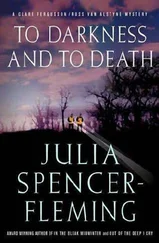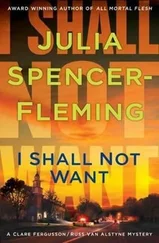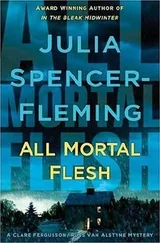Mar. 15 th. Clear and cold. Called around midnight by Jonathon Ketchem, of the valley, in great distress. Arriving before 2 am, to my great sorrow found two children had died. Sx as described by Mrs. K. diphtheria, in the boy the more malignant laryngeal form. Mary K. ag’d 2, gravely ill, lowered temp., palpitations, sibilous & inadequate respiration, extremities blue-tinged. Throat almost completely occluded by pseudomembrane. Mrs. K. reported the baby had been fighting hard for breath and seemed sleepy & eased now. It was my heavy duty to tell her the fatal termination was likely close. Peter K., ag’d 7, was post-acute stage, livid but clear throat, prostrate, weak & irregular pulse. I inoculated both children, though expect the baby will not survive the day. Explained the effects of the diphtheria toxin on the heart & warned Mr. & Mrs. K. of the dangers of exertion for Peter. Offered to reset Mr. K.’s fingers broken the day before in accident and set by himself. He refused tx. Not wishing me to sit for the death watch, I returned home & telephoned Mr. K.’s parents in Cossayuharie, who will join the Ks immediately. V. low in spirits & much discouraged by wastefulness since children might have been saved had I been called earlier this week. No appetite for breakfast and prayed the other households in my care will be Passed Over.
Clare shut the diary at that point. She felt as tired right then as George Stillman must have felt, hunched over a rolltop desk, writing carefully in his neat Palmer penmanship. She stacked the leather-bound books one atop the other on the coffee table. She closed the fireplace’s glass screens and turned off each light one by one. On the stair landing, she paused for a moment, looking at the journals etched in the light of the dying fire. She went upstairs to bed. It took her a long time to fall asleep.
NOW
Friday, March 31
Clare didn’t tell Debba exactly why she wanted to see her when she called after the seven o’clock Eucharist.
“Can we get together and talk? Today? I had an idea about the custody case.”
“Sure,” Debba said. In the background, Clare could hear the sounds of children shrieking and the watery grinding of a dishwasher. “Do you want me to call Karen Burns and see if she can come, too?”
“No. Not yet.” If she could use Dr. Stillman’s journal to drive an emotional wedge between Debba and her antivaccination beliefs, maybe Karen’s cool logic could make the break clean by pointing out that vaccinating Whitley would meet one of the major arguments in the ex-husband’s claim. But Clare was flying by instinct now, and her instinct was telling her Karen would just get in the way. She flipped open her agenda. “I’ve got a counseling session coming up and then a meeting with the church musician. How about ten o’clock?”
“Okeydokey. See you then.”
Clare reflected, as she was hanging up, that Debba was pretty upbeat for a woman facing some serious questions by the police. But then again, that was Debba. Upbeat and peaceable. Except when she wasn’t.
***
The purple buses were out. That was the first thing Clare saw as she shifted into neutral and began rolling down the hill toward the Clow house. Two figures-it looked like Debba and her mother, Lilly-were hosing the behemoths down, and the kids were dancing around the spray, leaping in and out of mud puddles. Clare coasted into the drive in front of the house, inspiring Whitley to dash across the road from the barn, and her mother, screeching, to run after her.
“Don’t ever, ever run across the road!” Debba snatched the three-year-old up, squeezing her hard. “You didn’t even look! You’re going to get squashed flat as a pancake!”
Whitley wiggled out of her mother’s grip and promptly lay down at Clare’s feet in the gravel drive. “I’m a pancake,” she announced.
Debba made a strangled noise of amusement and frustration.
“What’s up?” Clare looked across the road, where Lilly Clow had put down her hose and was attacking the side of one bus with a soapy sponge. Skylar was walking around and around the barnyard, picking up rocks and dropping them into little hills. From the size of the piles, it looked as if he had been at the task for a long time.
“Those are for my mom’s business, Hudson River Rafting. We’re taking advantage of the nice weather to clean them off. They get dust and chaff and squirrel poop on ’em, wintering over in the barn.” Debba had a bandanna tied over her kinky hair. She tugged it where it had slipped over her forehead. “You want to go in the kitchen and talk? I was going to get a cup of tea.”
“Flip me, Mommy, flip me,” Whitley said.
Clare opened her passenger door. Her parka was turning out to be too heavy, with the sun pouring out of the sky and the wind warm and southerly for the first time in memory. She tossed her coat into the front and took out Dr. Stillman’s diary. “Tell you what.” She handed the leather-bound book to Debba. “I’ll flip the pancake here and take her back over to her grandmother. You read this.”
Debba glanced at the imprint on the cover. “You want me to read a 1924 diary?”
“Not all of it. I stuck a bookmark into the section I want you to see. Go on in and have a cup of tea and then when you’ve read it, if you want to, we can talk about it.”
Debba continued to look warily at the book, as if it were a gift-wrapped bomb, one that might go off in her hand, but one she didn’t want to offend Clare by dropping.
Clare suddenly got it. “It’s not a religious tract. I’m not trying to proselytize you.”
Debba flushed. “It’s not that I’m not a spiritual person,” she said. “I’m just not into organized religion.”
Clare bet Debba had several angel books and a copy of The Celestine Prophecy . “Don’t worry. My religion’s not all that organized itself.” She stuck her hands in her pockets and hitched up her ankle-length skirt so she could crouch beside Whitley. “So what should I do with you, pancake?”
“Flip me!” Whitley stretched her arms wide. While Debba climbed the steps to the house, Clare rolled the child over on the gravel. Whitley made sizzling sounds.
“I think you’re all cooked,” Clare said. “I’m going to put you on the plate.” She heaved the three-year-old off the drive and sat her on the hood of the Shelby. “Now I’m going to butter you.” She pretended to smear something over Whitley’s stomach. The girl giggled. “And pour syrup on you.” She remembered her brothers’ trick of lightly running their fingers through her hair, along her scalp, making it feel as if something slow and liquid was running down her head. She did it now to Whitley, who squealed and laughed and swatted at Clare’s hands. “And now, since you’re so big, I’m going to fold you up and see if your grandmother wants to share you with me.”
She picked the girl up and crossed the road. Lilly Clow tossed her soapy sponge into a bucket. “Hey, Reverend Clare. Whatcha got there?”
“A pancake.” Clare stood Whitley up on the muddy, hay-flecked ground. “Want some?”
Lilly lunged toward the girl’s belly, making “yum-yum” noises. Whitley darted away, shrieking. “Grab your mom’s hose and rinse off these bubbles for me,” Lilly yelled after her.
“So you run Hudson River Rafting,” Clare said. “I saw your buses go by last summer when I was visiting Margy Van Alstyne. She lives right by where Old Route 100 crosses the Hudson.”
“I know Margy. She does good work for the environment.” Lilly flipped one of her long gray braids over her shoulder. “When you’re in the Adirondack tourism business, you owe a debt to folks like her. Too much development can wind up scaring visitors away.” She grinned, her teeth white and fine in her tanned, lined face. “Of course, if it hadn’t been for developers putting a bunch of dams on the wild waters in the first place, we wouldn’t have the rafting business we do today. So I guess I like development so long as it happened a good long time ago.”
Читать дальше
